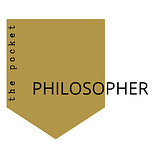Good morning Friends,
Today we’ll wrap up our conversation on Gamification and Technology. Yesterday we managed to create a common language around gamification, and today we’ll do a quick philosophical analysis.
Our ultimate goal at TPP is to increase our empathy and compassion. Bringing light to a few aspects inherent within this complex system will be really interesting and in line with our deepest values/goals.
As we all saw earlier this week with the 6 hour Facebook outage, the modern world and the digital world are deeply intertwined. In fact, I think it’s less a venn diagram and more like the physical world has become nested into the one that exists on the internet.
To be clear, I don’t think this is inherently a bad thing at all. In fact, this movement has tremendous capacity to bring about innovation, fairness, communication, understanding, and do things like increase our empathy for one another.
But today, we’re going to specifically talk about things on the internet that are “free.”
There’s two type of free on the internet:
Open Source
Atomized Marketing
The first comes from the best place we as a species can muster. It’s the drive to innovate, collaborate, share, and improve the common good. It’s sharing code, the evolution of something like bitcoin, giving out plans to an invention that makes others’ lives better, or the open sharing of our best ideas.
The other free is something known as atomization—the marketing practice inherent in large social media and digital companies.
I recently heard someone say, “if something is free on the internet, then the product being sold is most likely you.”
It’s the cookies that track your interests that position ads later on in the day.
It’s the trends and behaviors sold to companies at scale to more firmly manipulate consumer behavior.
It’s the lack of transparency regarding privacy in the name of commodification.
These huge consumeristic mechanisms have found that people are most easily commodified when they’re alone and glued to a device, sharing their unconscious thoughts and behaviors.
Some call this phenomenon—of pushing people into quiet isolation stuck on a device, providing behavior trends at scale for those watching—atomization.1
It’s the reduction of each human to its potential to provide information which is then used to retarget them and others for the purpose of consumeristic marketing.
Companies like Substack—where this newsletter is hosted—exist to upend this phenomenon by connecting readers directly with the artists and writers they love removing the atomization and commodification of people in the process.
The atomization model demands that content creators exploit the base instinct—anger, rage, sadness, confusion, fear—of people online in order to drive traffic, which then translates to pennies for the creators per visit.2
This replaces creativity with click bait and content that is often untrue or exaggerated.
This reduces the dignity of the writer/creator and further commodifies the consumer.
It’s a vicious cycle tearing at the fabric of our world—because remember, our physical world and virtual one are nested within each other.
This process affronts the most basic principles we’ve studied here at TPP—Stoic mindfulness, the compassion of Thich Nhat Hanh, the acceptance taught in the Tao, the self-compassion experienced in meditation.
Atomization, rather, exists on a devalued model of people and planet. It refuses to accept the dignity and autonomy of others. It manipulates to extract from people and the earth.
And these companies are locked into the theories of gamification, pulling us deeper into distraction and data extraction.
But there is a substantial and directed effort to keep our digital spaces safe. It’s creating places like Susbtack for artists to circumvent atomization, it's the rise of bitcoin removing the potential for human manipulation and corruption, it’s the rise of things like Distributed Ledger Technology (DLT) to upend the use of human violence and war.
But this is all for next week.
Today we stop to consider the digital world we all inhabit.
Like Epictetus said, “It’s not what happens to you, but how you react to it that matters.”3
All next week we’ll be looking at innovate ways to react, you won’t want to miss it.
Here’s to the journey of empathy and compassion my friend, until tomorrow.
Matt
PS, please share with a friend you think would find this interesting so they can follow along next week!
https://traversingtradition.com/2018/07/16/the-death-of-community-and-the-rise-of-individualism/
https://substack.com/going-paid?utm_source=menu-dropdown
https://medium.com/@parkernash/its-not-what-happens-to-you-but-how-you-react-to-it-that-matters-epictetus-24ee16653fd0#:~:text=%E2%80%9CIt's%20not%20what%20happens%20to,Epictetus%20%7C%20by%20Parker%20Nash%20%7C%20Medium












